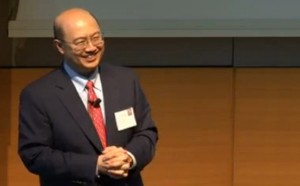Research
Lo, Andrew W. (1996), The Industrial Organization and Regulation of the Securities Industry, edited volume, University of Chicago Press.
View abstract
Hide abstract
The regulation of financial markets has for years been the domain of lawyers, legislators, and lobbyists. In this unique volume, experts in industrial organization, finance, and law, as well as members of regulatory agencies and the securities industry, examine the securities industry from an economic viewpoint.
Ten original essays address topics including electronic trading and the "virtual"stock exchange; trading costs and liquidity on the London and Tokyo Stock Exchanges and in the German and Japanese government bond markets; international coordination among regulatory agencies; and the impact of changing margin requirements on stock prices, volatility, and liquidity.
This clear presentation of groundbreaking research will appeal to economists, lawyers, and legislators who seek a refreshingly new perspective on policy issues in the securities industry.
Lo, Andrew W. (2017), Adaptive Markets: Financial Evolution at the Speed of Thought, Princeton University Press.
View abstract
Hide abstract
Half of all Americans have money in the stock market, yet economists can't agree on whether investors and markets are rational and efficient, as modern financial theory assumes, or irrational and inefficient, as behavioral economists believe—and as financial bubbles, crashes, and crises suggest. This is one of the biggest debates in economics and the value or futility of investment management and financial regulation hang on the outcome. In this groundbreaking book, Andrew Lo cuts through this debate with a new framework, the Adaptive Markets Hypothesis, in which rationality and irrationality coexist.
Drawing on psychology, evolutionary biology, neuroscience, artificial intelligence, and other fields, Adaptive Markets shows that the theory of market efficiency isn't wrong but merely incomplete. When markets are unstable, investors react instinctively, creating inefficiencies for others to exploit. Lo's new paradigm explains how evolution shapes behavior and markets at the speed of thought—a fact revealed by swings between stability and crisis, profit and loss, and innovation and regulation.
A fascinating intellectual journey filled with compelling stories, Adaptive Markets starts with the origins of market efficiency and its failures, turns to the foundations of investor behavior, and concludes with practical implications—including how hedge funds have become the Galápagos Islands of finance, what really happened in the 2008 meltdown, and how we might avoid future crises.
Abu-Mostafa, Yaser S., Blake LeBaron, Andrew W. Lo, and Andreas S. Wiegand (2000), Computational Finance 1999, edited volume, MIT Press.
View abstract
Hide abstract
This book covers the techniques of data mining, knowledge discovery, genetic algorithms, neural networks, bootstrapping, machine learning, and Monte Carlo simulation.
Computational finance, an exciting new cross-disciplinary research area, draws extensively on the tools and techniques of computer science, statistics, information systems, and financial economics. This book covers the techniques of data mining, knowledge discovery, genetic algorithms, neural networks, bootstrapping, machine learning, and Monte Carlo simulation. These methods are applied to a wide range of problems in finance, including risk management, asset allocation, style analysis, dynamic trading and hedging, forecasting, and option pricing. The book is based on the sixth annual international conference Computational Finance 1999, held at New York University's Stern School of Business.
Lo, Andrew W., and Ruixun Zhang (2018), Biological Economics, edited volume, Edward Elgar Publishing.
View abstract
Hide abstract
This two-volume set brings together a unique collection of key publications at the intersection of biology and economics, two disciplines that share a common subject: Homo sapiens. Beginning with Thomas Malthus–whose dire predictions of mass starvation due to population growth influenced Charles Darwin–economists have routinely used biological arguments in their models and methods. This collection summarizes the most important of these developments, including articles in sociobiology, evolutionary psychology, behavioral ecology, behavioral economics and finance, neuroeconomics, and behavioral genomics. Together with an original introduction by the editors, this important research collection will appeal to economists, biologists, and practitioners looking to develop a deeper understanding of the limits of Homo Economicus.
